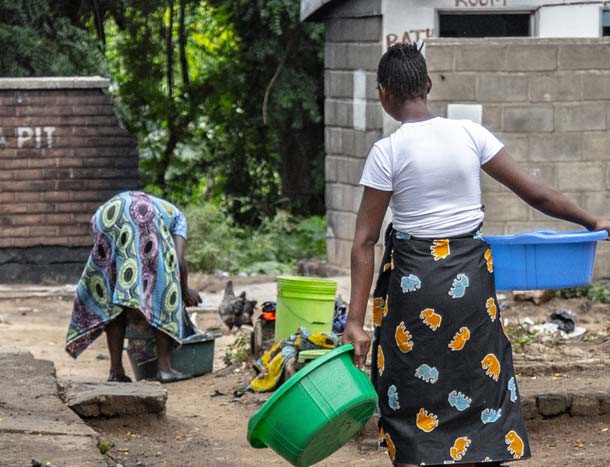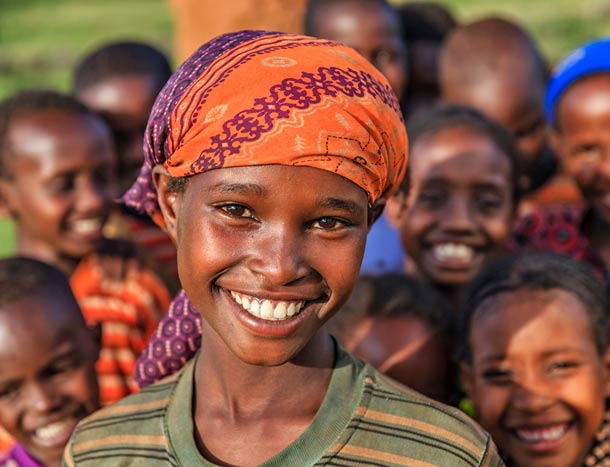Support in areas of conflict and health systems development
RCSI's deep responsibility and commitment to human health underlines our ongoing response to humanitarian emergencies, areas of conflict and support in low-resource countries.
A humanitarian response
As an institution whose mission is to educate, nurture and discover for the benefit of human health, RCSI is responsive to the impacts of humanitarian disasters and health crises around the world.
We have particular expertise in providing education and training to support the sustainability of healthcare systems which have low capacity to provide appropriate patient care due to issues including underinvestment in low-resource regions, conflict and natural disaster.
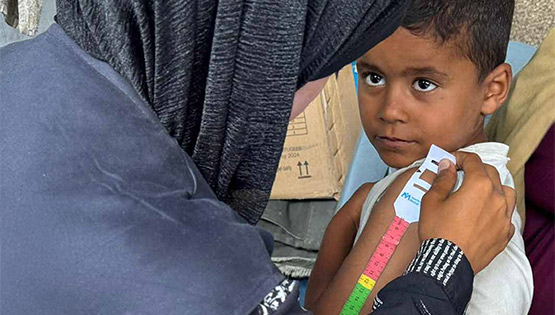
How we make an impact
RCSI calls for an immediate ceasefire, release of hostages, urgent provision of humanitarian aid and restoration of health services in Gaza.
We have all been appalled by the violence and injuries inflicted upon innocent civilians in Gaza, Israel, the West Bank and Lebanon, for which there can be no justification. The deaths of children from violence and starvation shame us all.
The conflict has now reached a crisis point, with respected international aid organisations alerting the world to the inevitability of mass famine in Gaza, unless urgent access is provided to humanitarian aid and advanced nutritional support to vulnerable groups, such as young children and the elderly.
In rapidly deteriorating circumstances, our healthcare professional colleagues have selflessly, sometimes paying the ultimate price with their own lives, provided the best care possible to their people. They are providing care in appalling conditions, without adequate equipment or supplies, often at great personal danger. They deserve our greatest respect and more importantly our urgent support.
Access to healthcare is a basic right, healthcare facilities must be safe spaces, even in conflict. Healthcare professionals must be allowed to practice in safety and given adequate resources to provide the care, that is required.
International humanitarian law must be respected, immediate action is necessary to protect civilians and ensure access to food, water, shelter, and medical care. These are fundamental human rights.
We do not speak in the name of politics, but in the name of principle. We cannot remain silent while children starve and healthcare is extinguished. To do so would betray our duty to society, as healthcare professionals.
We call for the immediate lifting of barriers to humanitarian aid and the restoration of healthcare provision.
Supporting vital healthcare in Gaza
To support the humanitarian crisis in Gaza, RCSI is collaborating with Irish-based organisation, One4Humanity and the International Medical Corps (IMC) to increase capacity in its field hospital in Middle Gaza.
In operation since January 2024, the field hospital in Deir Al Balah has provided 432,000 outpatient consultations, 13,000 surgeries and 5,600 safe deliveries as well as other vital services such as:
- Expanded programme of immunisation
- Mental health and psychological support
- Water sanitation hygiene
RCSI, together with our Faculty of Nursing and Midwifery, are supporting the IMC to provide these essential services, including maternal services to over 800 patients a day. The partnership will also provide access to unique insights that could help inform our understanding of the workforce skills needs and challenges for staff in these crisis environments in order to support future capacity building and training of medical staff.
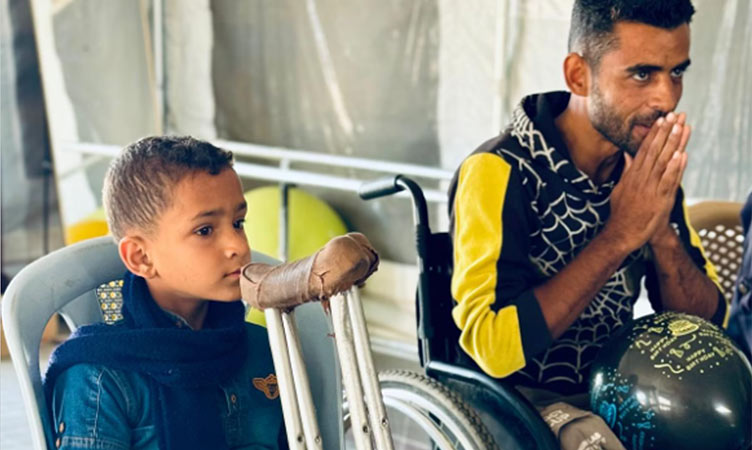
United Nations Global Surgery Learning Hub (SURGhub)
Upskilling of the frontline surgical care workforce through education and training of the existing and future surgical care workforce is an essential component in the provision of safe surgical care worldwide.
The open access United Nations Global Surgery Learning Hub is a UN-based platform that gathers and allows easy access to a wide range of trusted, quality global surgery educational resources.
Course content is curated from multiple institutions, including RCSI and partners around the world. RCSI manages the curation process through a series of international panels of expert peers who advise on the courses necessary in a variety of settings.
There are now 100 courses covering topics such as surgery, anaesthesia, obstetrics/gynaecology and perioperative nursing in low-resource settings. To date 19,000 learners from 190 countries are now using the free platform which includes surgeons, anaesthestists and nurses in Ukraine and Emergency Medicine doctors in Gaza.
There are also SURGhub learners in other conflict-affected countries including Ethiopia, Sudan and Yemen.
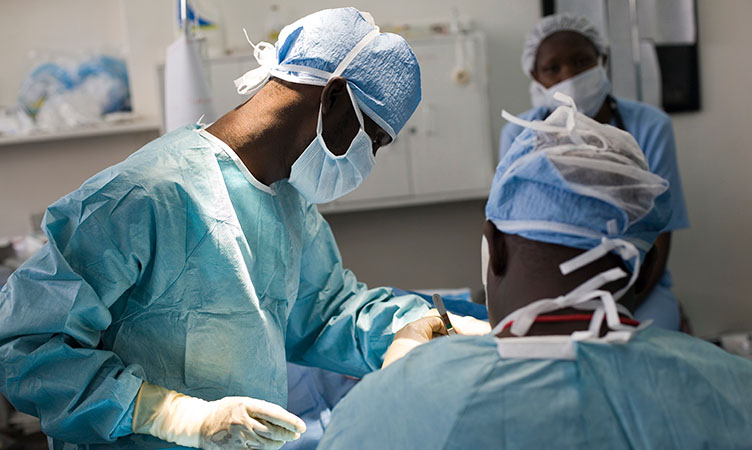
Supporting displaced doctors from Ukraine
As Ireland’s national surgical training body, RCSI responded to the crisis in Ukraine by enrolling displaced doctors as affiliate members and providing free access to a range of CPD courses, ensuring they can maintain their skills, competencies and formal qualifications while they are based in Ireland.
RCSI developed a guide to help displaced Ukrainian to explore work and training opportunities within the Irish public health system.
RCSI Institute of Global Surgery
The RCSI Institute of Global Surgery supports the training, retention, upskilling and career development of surgery, anaesthesia, nursing and obstetric caregivers, from health workers to specialists.
Five billion people globally lack access to safe, affordable and timely surgical care. The crisis is most acute in sub-Saharan Africa, where 93% of the population is unable to access the surgery they need when they need it.
Thorough the RCSI Institute of Global Surgery, we are strengthening the delivery of surgical services and the surgical ecosystem and use innovative technologies and e-learning to enhance the reach and impact of surgical training and service delivery.
In 2007, RCSI and COSECSA, the College of Surgeons of East, Central and Southern Africa, came together to address this crisis with the COSECSA Collaboration Programme.
The partnership is investing in developing surgical training programmes with the aim of encouraging more doctors to train and support them to remain in their home countries to address the surgical needs of these vulnerable populations.
RCSI working in partnership with COSECSA has graduated over 500 fully trained surgeons across 20 countries since 2007. Over 90% of these surgeons have been retained and are practicing in their home countries. This demonstrates the impact of providing high quality post-graduate training locally, with surgeons significantly more likely to stay and eventually become trainers for the next generation of surgical graduates. In 2020 the partnership marked a significant milestone of COSECSA-trained surgeons delivering a total of 250,000 surgeries across Sub-Saharan Africa.
RCSI's Institute of Global Surgery also has projects to provide anaesthesia training, safe water for health services and to promote breast cancer control.
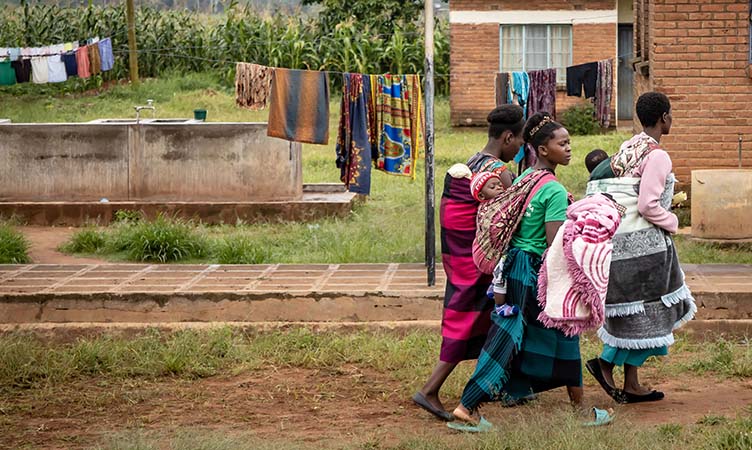
Online teaching programmes for children's surgery in low-resource settings
Global health charity Kids Operating Room (Kids OR) is investing in the first Pan-African Paediatric Surgery E-Learning Programme (PAPSEP) to help train paediatric surgeons across 32 African countries with a combined population of 800 million.
The e-learning platform is built by the RCSI Institute of Global Surgery, with content provided in partnership with COSECSA, the College of Surgeons of East, Central and Southern Africa. We work together to provide a new and bespoke teaching resource mapped to the curricula of both training programmes.
It is one of the first online teaching programmes for children's surgery that focuses on low-resource settings.
Ukrainian Nurse Leader Programme
RCSI’s Faculty of Nursing and Midwifery has developed a programme in partnership with the Centre for Nursing Development of the Ministry of Health of Ukraine. 26 Ukrainian nurse, midwife and healthcare leaders travelled to Dublin for an intensive educational programme covering topics including leadership, higher education, continual professional development, strategic priorities and advanced practice.
The first programme, which took place in May 2024, included contributions from the World Health Organisation and the Office of the Chief Nurse in the Department of Health with site visits to the Nursing and Midwifery Board of Ireland and Beaumont Hospital.
The programme is designed to share the best nursing and midwifery clinical practices, recent professional advancements and developments to assist Ukraine with their plans to redesign and rebuild their health service post-war. The programme will also empower the nurse leaders to share the learnings with the wider nursing community in Ukraine while they continue to deliver patient care during the conflict.
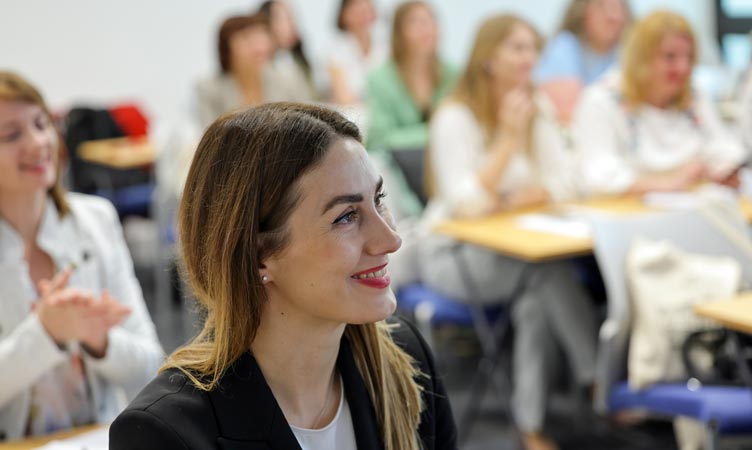
RCSI is a signatory to the UN Supported Principles for Responsible Investment and is committed to environmental, societal and governance (ESG) reporting standards.
RCSI aligns to environmental, social and governance (ESG) principles by applying ethical considerations when making investments, including not investing in fossil fuels, tobacco or armaments.
RCSI is a member of Scholars at Risk (SAR), a global support agency for researchers and students displaced due to war or other political unrest across the world.
Through SAR Europe and Erasmus we have hosted displaced Ukrainian students to support their continuing education.
We are also hosting displaced Ukrainian academics through SAR and Marie Skłodowska-Curie Action (MSCA4Ukraine) to enable them to progress their research careers and networks.
RCSI has a proud history of volunteering to support a range of international charities and NGOs focused on human health. We actively encourage our students to pursue international volunteering opportunities as a way to enhance their understanding of providing health care in low-resource countries.
As well as providing much-needed support to communities facing significant healthcare challenges, we consider volunteering as a way for our students to develop their communication and professionalism skills.
Many RCSI Alumni, Fellows and Members in Ireland and Bahrain provide their professional expertise as volunteer doctors and surgeons in several countries around the world.
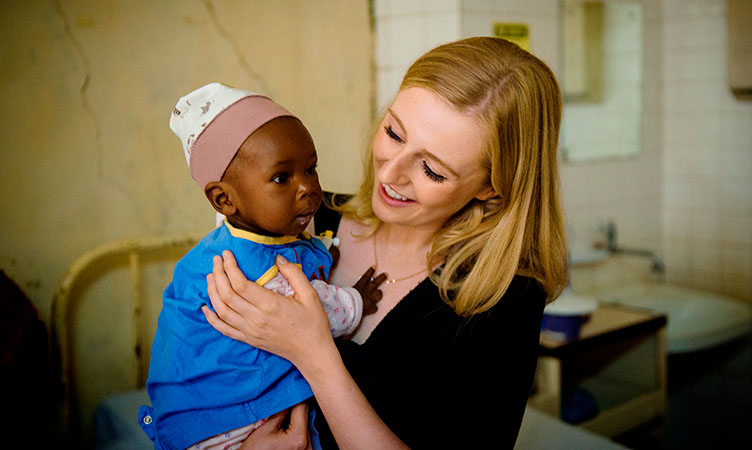
Operation Childlife
Operation Childlife was founded in 2004 to upskill and mentor paediatric doctors and nurses in Vietnam and to carry out a number of complex surgeries and has since expanded to Tanzania, Mongolia and Jordan. Professor Martin Corbally, Professor and Head of the Department of Surgery at RCSI Bahrain is the Founder and Programme Director of Operation Childlife.
Through the Operation Childlife Clinical Travel Fellowship, RCSI and Operation Childlife are working together to support surgical trainees or medical professionals gain additional expertise by participating in paediatric healthcare missions, led by Irish hospital consultants, doctors and nurses who plan and deliver two-week programmes of care, with Operation Childlife in Vietnam, Tanzania, Mongolia and Jordan.
Over 100 senior-level consultants have travelled as volunteers for one and two week missions, conducting complex surgeries, providing pre- and post-operative support and guidance and training, mentoring and developing their local colleagues on a continual basis. The countries and regions they visit lack, or have limited expertise in, key disciplines such as paediatric cardiology, oncology, orthopaedics, intensive care, anaesthesia, interventional radiology, urology, plastic surgery, ear, nose and throat surgery and related nursing care. Collectively Operation Childlife’s paediatric partners have a fast growing catchment of 45 million people, with 15 million under the age of five years.
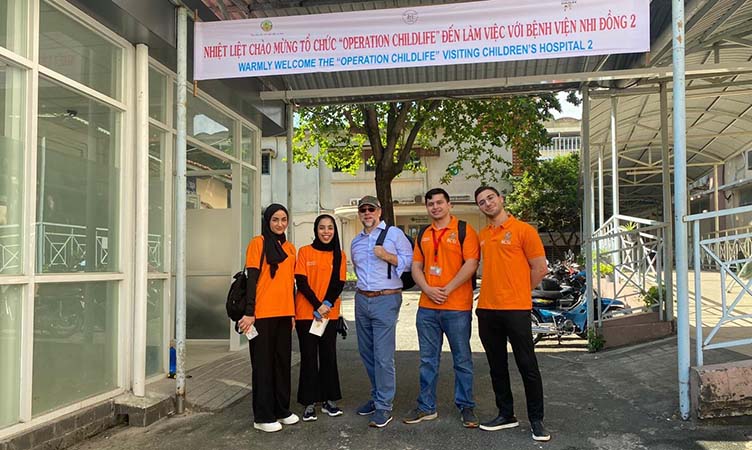
The Olive Branch for Children
The Olive Branch for Children helps remote communities in Tanzania assess their primary healthcare needs and establishes programmes that target the most vulnerable in those communities. RCSI students volunteer with The Olive Branch for Children Mobile Medical Clinic which operates in the most remote communities in their catchment area. The clinic provides baseline healthcare, focusing on child and maternal health, HIV testing and care, malaria testing and treatment, diagnosis and treatment of basic medical issues, wound care, family planning, blood pressure monitoring and emergency referrals to permanent health facilities.
Christina Noble Children’s Foundation (CNCF)
The Christina Noble Children’s Foundation (CNCF) is dedicated to serving the health, education, and emotional needs of vulnerable children who are at risk of exploitation, trafficking, and violence through our three humanitarian areas of work: healthcare, education, and community development.
RCSI students have volunteered since 2005 at the Sunshine Social and Medical Centre (SSMC), Ho Chi Minh City (HCMC). The aim of the SSMC is to provide an international standard of care to orphans and children from extremely poor families from HCMC and surrounding provinces.
The centre provides disadvantaged children with access to high-quality comprehensive care so they can reach their optimal physical, sensory, intellectual, psychological, and social functional levels for successful integration into their communities.
During the COVID-19 pandemic, RCSI became the first in Ireland to call on the Irish Government to endorse moves which would pave the way for the generic production of medicines and provide low- and middle-income countries with access to COVID-19 vaccines and other treatments.
RCSI’s proposal was to temporarily suspend intellectual property rights for health technologies that are needed to prevent, contain, or treat COVID-19, until vaccine equity could be achieved. This is known as a TRIPS Waiver.
TRIPS (Trade-Related Aspects of Intellectual Property Rights) is a World Trade Organisation Agreement that protects intellectual property, including patents on medicines produced by pharmaceutical companies.
Since RCSI’s endorsement, a motion was also passed in the Seanad (upper house of the Irish parliament) calling on the Government to support the TRIPS Waiver.

